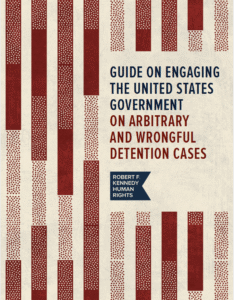Trial Chamber III at the International Criminal Court (“ICC”) delivered a historic verdict in the Jean-Pierre Bemba trial on March 21, 2016, finding Bemba guilty beyond a reasonable doubt on three counts of war crimes (murder, rape, and pillaging) and on two counts of crimes against humanity (murder and rape) perpetrated in the Central African Republic (“CAR”) in 2002 and 2003. The trial and judgment is significant on many accounts; one being that this is the first case to heavily focus on crimes of sexual violence as a weapon of war and a tool to terrorize a civilian population. This is also the first conviction of an accused under the command responsibility doctrine of Article 28 of the Rome Statute. Lastly, the trial chamber granted approximately 5,229 victims the right to participate in the proceedings against an accused, the most in any trial to date.
Bemba was the former president and Commander-in-Chief of the Movement for the Liberation of Congo (“MLC”), a rebel group that became a political party in the Democratic Republic of Congo (“DRC”). At the time of Bemba’s arrest in Belgium on May 24, 2008, he was a senator of the DRC. Bemba’s conviction before the ICC stems from the MLC militia’s intervention in the Central African Republic (“CAR”) in 2002 to thwart off an attempted coup against former president Ange Félix Patassé. The ICC investigation in CAR was opened by the Chief Prosecutor on May 22, 2007 after a referral by the CAR government in 2002, with the trial against Bemba beginning in 2010.
The ICC Trial Chamber concluded that MLC troops committed mass atrocity crimes, including acts of widespread sexual violence in CAR, which were used as a means to terrorize the civilian population in CAR. Presiding Judge Sylvia Steiner noted that the perpetrators invaded the bodies of the victims by force, and that some MLC soldiers committed such acts in an effort to “destabilize, humiliate, and punish suspected rebels and rebel sympathizers.”
Bemba was also found guilty of rape, murder, and pillage under the theory of command responsibility. The doctrine allows a commander or civilian superior to be held criminally liable for the crimes committed by subordinate members of the armed forces or other persons under their control. A commander can be held liable even if he or she did not order the crimes to be committed – it is enough that the commander merely failed to prevent, repress, or punish the crimes committed by his or her subordinates. While Bemba’s defense claimed that Bemba was not present in CAR and could not issue orders to troops deployed in a neighboring country, the ICC Trial Chamber nevertheless found that MLC members not only committed the alleged crimes in CAR, but that in his capacity as military commander, Bemba “knew that the troops were committing crimes and did not take all necessary and reasonable measures within his power to prevent or repress their commission.”
While a date for Bemba’s sentencing hearing will be set shortly, the ruling is significant for setting precedent on accountability of sexual violence as a systematic weapon of war, and for finding that warlords and militia leaders can still be held criminally responsible under a theory of command responsibility despite their lack of direct involvement in perpetrating the acts of violence.




